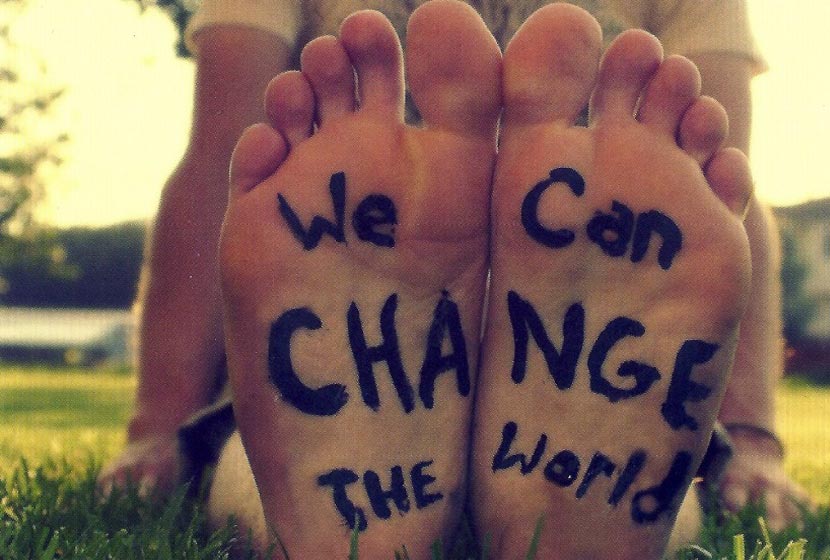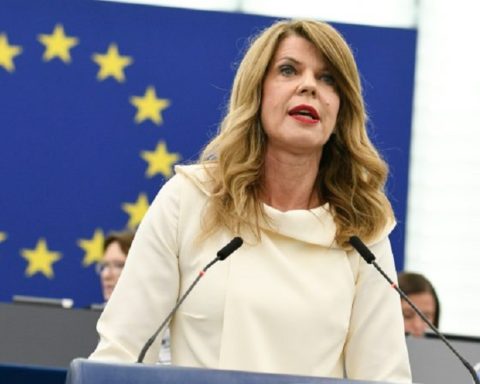The Responsibility Pact is based on the principles of CSR (Corporate Social Responsibility). How can we ensure that it encourages companies to adopt a 'CSR attitude'? In this article in 'Management & CSR'. .
How does the Responsibility Pact implement the principles and operating methods of CSR? Do the pact and CSR share more than their common word, Responsibility? The implementation of the responsibility pact is based on four principles that make up CSR, which gives it a strong connection with social responsibility approaches. A further step could even be taken, with the integration of CSR as a possible counterpart within the pact.
On the occasion of his greetings to the French on 31 December 2013, François Hollande proposed a corporate responsibility pact to companies, "based on a simple principle: less work, less constraints on their activities and, in return, more hiring and more social dialogue".. The content and mode of operation of this pact are not alien to the concept of CSR. The proximity between these two notions became clear to me during the debates within the Terra Nova working group on the responsibility pact, which I had the pleasure of chairing, and during the closing round table at the Produrable trade fair, which I had the pleasure of chairing, entitled "Can CSR promote the responsibility pact? The social partners have their say".
I have therefore tried here to formalize some of the ideas exchanged - and I thank the bearers of these ideas, who will recognize themselves!
Let us begin by explaining the four principles of CSR, on which the Responsibility Pact is based.
Voluntary integration
The European Parliament defined CSR in the early 2000s as "the voluntary integration of environmental and social considerations into the activities of companies, outside legal requirements and contractual obligations". It is indeed the logic of the pact to seek to change the economic equation of companies by encouraging them to include the concerns of stakeholders that are not usually taken into account: job seekers, the general interest, etc. Is the approach totally voluntary? Yes, but it is regulated by negotiation (branch agreements, which will begin to be negotiated in the coming weeks) and financial incentives (reductions in social security contributions totalling 30 billion euros, including the CICE [1]).
Negotiation and incentive: the pact contains the oscillation between a forced and a totally voluntary approach, which is familiar to us in the CSR "paradigm". It should also be noted that the European Union has changed its conception: after the initial definition cited above, which strongly emphasizes the voluntary nature of the approach, the new definition adopted ten years later, after months of debate, is more complex: "Corporate social responsibility concerns the actions of companies that go beyond their legal obligations towards society and the environment. Certain regulatory measures can create more favourable conditions to encourage companies to fulfil their social responsibilities voluntarily"[2]. A recent materialisation of this instillation of the regulatory constraint on CSR is the new European legislation on extra-financial reporting.
The responsibility pact pushes companies to adopt the "CSR attitude": to integrate market logic and corporate logic into their business strategy, rather than managing them separately.
The culture of compromise
The essence of CSR is to provide a framework for regulating multi-stakeholder trade-offs. This culture of dialogue and co-construction clearly appears in the responsibility pact, which materialises the unstable result of the reasoned confrontation between three parties: the State, companies and trade unions. The ups and downs that have marked the construction of the pact, since its announcement by the President of the Republic in his greetings to the French people on 31 December 2013, reflect the changing balance of power between these three players.
At his press conference on 14 January 2014, the president presented the responsibility pact as "a great social compromise, perhaps the greatest proposed in decades". In a remarkable article entitled "The three possible readings of François Hollande's responsibility pact", Olivier Favereau sees a precedent: "For the first time, the question of a thoughtful and responsible political partnership of all companies with the nation-state has been raised. This goes far beyond the old social democracy"[3].
The point of balance of this regulation is materialised by the notion of counterpart, which is an integral part of the pact but is not sufficiently emphasised today. It is essential in the link with CSR since the counterparts materialise the responsibility assumed by the company towards society. On this point, I invite you to read my article for Miroir Social: "Pact of responsibility: 6 reasons to (urgently) rehabilitate the counterparts".
Finally, the success of the pact, like that of most CSR initiatives, depends closely on the trust that is built up between stakeholders, on their common desire to move forward, to build a loyal and forward-looking relationship, to accept compromise. This trust is an unstable matter that is under constant threat.
Broadening the social dialogue
CSR is a tool for anticipating and controlling risks in an inclusive way: it puts stakeholders in the game; it makes them responsible for common objectives; it strengthens them as a legitimate interlocutor and partner. The pact was built on a similar logic. Its intention is to recognise that the social partners must also become economic partners. Far from being reduced to a negotiation that takes place when decisions have already been taken and that one can only "limit the damage" (e.g. PES), social dialogue opens up upstream, towards the diagnosis of the economic situation and the room for manoeuvre available to deal with employment and qualification issues.
This is a major contribution of the negotiation of counterparties, which I regret that it focuses on professional branches rather than on companies - at least for the largest of them.
The visibility approach
CSR is a process, an approach aimed at encouraging companies to make specific commitments to their stakeholders, to formalise them, make them visible, evaluate them in a contradictory way (reporting, social rating, communication, etc.) and communicate the results. This concern for transparency is reflected in the initial intention of the pact, presented by the President of the Republic in his address to economic and employment stakeholders on 21 January 2014: a pact with "clear, precise, measurable and verifiable counterparts".
The pact, like CSR, operates on a contractual logic. As Patrick d'Humières, director of the CSR Management Institute, has pointed out, "the responsibility pact will remain a political stance of those who will quickly turn confused statistics, if it does not descend into the practice of individualized implementation, challenging the CSR approaches that most groups now claim to be based on"[4].
The Terra Nova working group on the responsibility pact has proposed a comprehensive, pragmatic and concrete approach that puts these principles into practice: "Making a success of the responsibility pact: for a culture of economic and social dialogue", Terra Nova Note, 14 March 2014.
How do you take the next step?
Today, the CSR approach is a backbone of the responsibility pact: it provides it with organizational guidelines. Going further would consist in making CSR a content of the pact, through the counterparts. While CSR is today a source of inspiration for the pact, it is the pact itself that would become a driving force for CSR.
The current counterparts focus on employment, vocational training, investment and "producing in France". Several speakers, both at the Produrable round table and at meetings of the Terra Nova working group, put forward proposals to make CSR a possible counterpart in the pact.
Three concrete proposals seem to me to be particularly promising
Governance. The ANI on job security of January 2013 (law of 14 June 2013) provides for the appointment of one or two salaried directors in large companies. It is unfortunately unlikely that such a modest employee representation is sufficient to change the balance within the boards of directors [5]. Let us recall that in his report on competitiveness, Louis Gallois recommended the presence of at least 4 employee representatives (and at most one third of the members) in the Boards of Directors or Supervisory Boards of companies with more than 5,000 employees [6]. 6] Companies would thus be encouraged, as a quid pro quo for the reduction in social security contributions, to adopt these recommendations. They would thus take a more decisive step towards responsible governance.
Social rating. One of François Hollande's proposals at the time (Commitment No. 24) consisted in "setting up a compulsory social rating system for companies with more than 500 employees to have the management of their human resources certified annually with regard to criteria of job quality and working conditions"[7]. The implementation of this rating would make it possible to match the level of social contribution reductions to the quality and social performance achieved by the company for the benefit of its employees and the community.
Registration in the territories. In its current configuration, the pact essentially integrates three stakeholders (State, companies, employees). Insofar as the place where work and its movements (professional transitions, training, etc.) are anchored in the employment areas, a genuine decentralisation of the pact would make it possible to federate all the stakeholders in the creation and development of jobs. Thus, for example, the negotiation of counterparts could be entrusted to the territories that request it. This approach would also encourage the inclusion of CSR, a sometimes ethereal concept, in the clay of the territories, close to citizens and employees. A positive sign: one of the new Prime Minister's first initiatives was to bring together the State's territorial representatives (Maison de la Chimie in Paris, 28 April 2014): "The new Prime Minister has decided to bring together the State's territorial representatives to discuss the issue of CSR in the territories. it is up to the prefects and State representatives to bring the responsibility pact to life in the territories".said Manuel Valls. Prefects and DIRECCTE[8] will have to install the pact. "and organise the follow-up with the social partners".
Conclusion
The partnership approach supported by the responsibility pact is essential. It is all the more necessary in the face of the impasse constituted by the exhaustion of our development model. The company can no longer sustainably bear the challenge of competitiveness alone; employees can no longer bear the challenge of work and the State can no longer bear the challenge of employment. These three actors are "stakeholders", literally "stake holders", who must grasp the notion of responsibility, i.e. be able to provide global responses. Each of them must get out of their agreed role, go beyond their stereotypical stance to weave the social compromise, the contractual policy that articulates this core of issues: competitiveness, work, employment.
Martin Richer, Independent Consultant
1] Competitiveness and employment tax credit
2] "Corporate Social Responsibility: a new EU strategy for 2011-2014", Communication from the European Commission, 2011.
3] Revue du MAUSS permanent, January 16, 2014.
4] "Individualiser et territorialiser le pacte de responsabilité", Le Monde, 9 January 2014.
5] See on this point: "Employees in the CAs: state of play", Metis Europe, 26 March 2013.
6] "Pact for the Competitiveness of French Industry", 5 November 2012.
7] "Mes 60 engagements pour la France", Brochure by François Hollande for the presidential election of 22 April 2012.
8] Regional Directorates for Enterprise, Competition, Consumer Affairs, Labour and Employment
![]()
– The Terra Nova report: "Making a success of the responsibility pact: for a culture of economic and social dialogue".
– An interview of Terra Nova on Xerfi The responsibility pact: which counterparts? What role for social dialogue? What are the key success factors?












